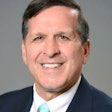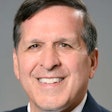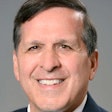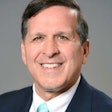
An appellate court has ruled that a lawsuit filed by an Ohio dentist regarding advertising as a specialist can proceed. The suit focuses on an Ohio law that forbids dentists from advertising as specialists when they also perform general dentistry.
In 2009, Russell Kiser, DDS, of Mansfield received a letter from the Ohio State Dental Board informing him that he was illegally "performing procedures outside the scope of endodontics" while "holding himself out as a specialist," according to the lawsuit.
Dr. Kiser, along with his dental degree, also has a master's degree in endodontics from the Ohio State University College of Dentistry. He offers general, cosmetic, and specialty-based procedures, such as root canal treatments or surgeries, according to his website.
"You can be a general dentist, and then advertise and perform specialty services you are qualified to perform, so long as you also state you are a general dentist," according to the board's response that is included in the lawsuit.
At press time, the Ohio State Dental Board had not responded to requests for comment.
Ban violates commercial free speech
In 2012, Dr. Kiser asked the dental board if he could use ads that would include "endodontist" and "general dentist," according to the suit. The board responded by sending him the regulations forbidding him to advertise himself as both. He subsequently sued the board, claiming the rule violates his First Amendment right to commercial speech. When a district court dismissed the case, Dr. Kiser appealed.
In its ruling on August 5, 2016, the Sixth Circuit Court of Appeals noted the seemingly contradictory stance of the board regarding which procedures can be performed and which ones can be advertised. The ruling pointed out that the rules allow Dr. Kiser to use the terms "endodontics" or "root canal" but not "endodontist."
"The problem with the board's illegal activity argument is that there is nothing illegal about performing endodontic procedures while providing general dentistry services," the court stated in its decision.
The ruling highlighted that regulations do not prevent a dentist from practicing outside of a specialty.
"The challenged regulations do not ban Kiser from practicing outside of his specialty," the justices noted in their ruling. "Rather, they ban him from doing so while advertising that he is an endodontist" (italics from ruling).
The appellate court noted that the U.S. Supreme Court has repeatedly rejected bans on commercial speech.
"The truthful, nonmisleading information would be useful to patients because it sets Kiser apart from general dentists who are qualified to perform endodontic procedures but lack such specialized training," the justices wrote.
A similar case in which the appellate court ruled against the Kentucky Board of Dentistry regarding a general dentist who used "orthodontics" and "braces" in ads also was cited.
Lawsuit can proceed
Dr. Kiser's attorney, Todd W. Newkirk, was encouraged by the appellate court's decision to allow the lawsuit to proceed.
"We are confident that the board will not be able to produce the evidence necessary to justify its restrictions on commercial free speech," he told DrBicuspid.com. "Dr. Kiser holds the same license as every general dentist, but he is also an endodontist, and he should be able to truthfully inform the public of such."
The appellate court sent the case back to district court. At press time, the district court had not scheduled the hearing.
Similar case in Arkansas
In a similar case, two Arkansas orthodontists sued the Arkansas State Board of Dental Examiners in 2014 after they were ordered to stop offering teeth-cleaning services. The Arkansas board asserted that they violated the law, because dental specialists aren't allowed to practice outside their area of expertise. The lawsuit was dismissed without prejudice by a U.S. district judge.



















